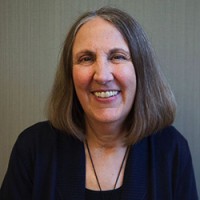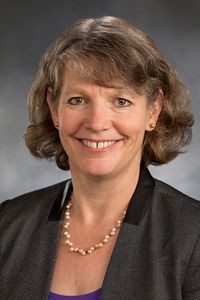As Part of our latest River Currents newsletter issue, Columbia Riverkeeper Interviewed Beth Doglio, Regna Merritt, and Jan Hasselman, three leaders from the all-star team at the helm of the Power Past Coal coalition, reflecting on the wildly successful effort to protect the Pacific Northwest from coal export.
Rep. Beth Doglio represents the 22nd District in the Washington State Legislature and is currently running for Congress in Washington’s 10th Congressional District. She served as campaign director for non-profit Climate Solutions for the last 13 years. Regna Merritt is a retired physician assistant, former co-director of Power Past Coal and former Healthy Climate program director for Oregon Physicians for Social Responsibility. Jan Hasselman is a staff attorney at Earthjustice’s Northwest office. He currently serves as lead counsel to the Standing Rock Sioux Tribe in their litigation challenging the Dakota Access Pipeline.
Riverkeeper: What memory stands out from your years working with the Power Past Coal coalition to stop Millennium Bulk Logistics, and its proposal to build North America’s largest coal export terminal on the Columbia River?
Regna: The first public hearing for Millennium at the Cowlitz Event Center. The room was packed with people ready to testify. Columbia Riverkeeper was the glue that made that day, and every other event, so successful. Millennium’s CEO testified first and touted the economic benefits. Our coalition asked a local oncology doctor to follow the CEO. The doctor shared his expertise on cancer risk and went on to describe the expected devastating impacts of coal pollution on people’s health. Tribal members, ranchers, fishermen, nurses, parents, and many other people followed. Our testimony was so diverse, so powerful.

Jan: I’ll never forget the day this journey began for me. I was in my office, feet on my desk. I had just finished the Clark County Pollution Control Hearings Board trial (a lawsuit brought on behalf of Columbia Riverkeeper and partners challenging Clark County’s illegal stormwater pollution plans). Brett (VandenHeuvel, Riverkeeper’s executive director) called and said, ‘We just found out there’s a proposal to build a massive coal export terminal on the Columbia River. Does Earthjustice want to get involved?’ I didn’t hesitate. Absolutely. Soon enough, we were buried with six coal export terminal proposals in the Northwest. I never regretted my enthusiasm.
Riverkeeper: How would you describe Columbia Riverkeeper’s role in the Power Past Coal coalition’s success?
Jan: I’m not sure there would have been Power Past Coal without Riverkeeper. Riverkeeper was pivotal in creating a full blown, regional campaign in an incredibly short amount of time. Riverkeeper combines fierce advocacy and technical know-how and punches above its weight class. It's a one-stop shop.

Regna: Riverkeeper has incredible relationships in Columbia River communities. The staff’s on-the-ground knowledge paired with technical and legal expertise was critical. That combination is rare—it's truly a national model.
Beth: In the overall move toward a fossil fuel-free future, this campaign set a new high for many conservation organizations in working with tribal nations. Riverkeeper had a long history of working in solidarity with tribal nations before coal export, and those relationships were critical throughout the campaign.
Riverkeeper: Jan, take us back to March 2011. Millennium withdrew its permit application after you discovered in company documents that the true scope of the coal export project was up to 12 times what had been proposed in the permitting process. What was going through your head when you made that bombshell discovery?
Jan: Millennium’s attorneys buried us in hundreds of thousands of pages of discovery. They probably thought we weren’t going to look at everything. But I did. And references to a “Phase 2” kept popping up. Over weeks of reading thousands of emails, I put together that Millennium planned this deception: proposing a relatively small coal-export project to secure permits and then immediately ramp up to the nation’s largest coal export terminal.
We were able to get in touch with a New York Times reporter and land a national story. I remember sitting at my desk the morning the New York Times story came out and thinking: ‘Is there something wrong with me that I’m enjoying so much ruining someone else’s day?’ Millennium’s CEO resigned. The corporation’s lies set the project back five years; it gave us the breathing room to build an even stronger campaign.
Riverkeeper: Beth, how did your experience co-directing the Power Past Coal inspire your decision to run for office?

Beth: In all my years of organizing on environmental issues, I’d never done work that had a permitting component. Power Past Coal taught me the power of permitting and the critical role agencies can play in combating climate change. Plus, I thrived in the sheer energy of this people-powered campaign. When the (Washington State) Legislature seat opened, I saw an opportunity to bring those voices into the Legislature. The same is true for my decision to run for Congress. We need more of our voices in those settings. Our values are underrepresented.
Riverkeeper: Earthjustice continues to represent Riverkeeper and other members of the Power Past Coal coalition in Millennium’s protracted legal challenges to Washington state’s rejection of coal export permits. What are your predictions for the future of coal export in the Northwest?
Jan: There will never be a coal export terminal on the West Coast. This project has not been viable for several years. And it is only going to be less viable over time.
Get inspired by the last 20 years of impactful work in solidarity with local and regional heroes of our movement.


